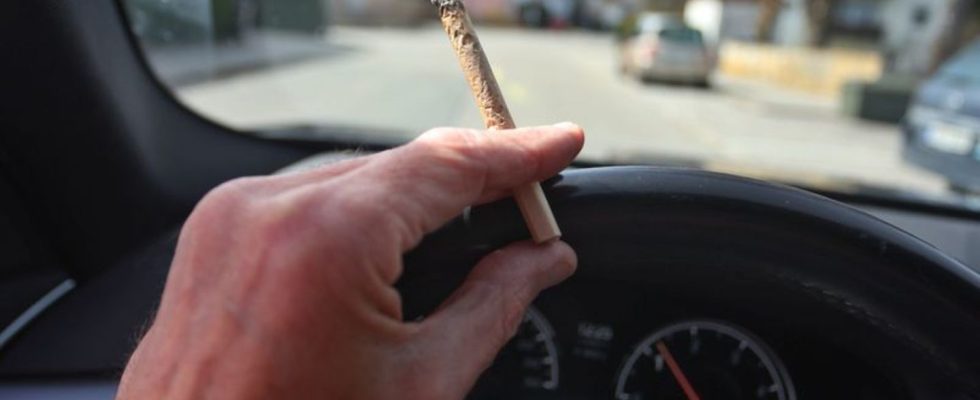Partial legalization
Cannabis law: Police want to control more
Cannabis while driving: The police in Saxony-Anhalt want to increase traffic controls. photo
© Karl-Josef Hildenbrand/dpa
The police see a lot of work ahead of them when the cannabis law comes into force. In some places there should be increased controls, but not everywhere.
The police in Saxony-Anhalt, for example, announced that they wanted to increasingly monitor drivers for the influence of cannabis. According to the State Ministry of the Interior in Magdeburg, this is intended to reduce the risk of accidents in road traffic as much as possible. In many cases, however, there is still a need for coordination.
Schleswig-Holstein’s police have not planned any increased traffic controls, at least at the start. However, she wants to gradually expand this over the next few months. The Saxon police want to focus primarily on crime hotspots. Police officers are supposed to identify dealers in order to specifically protect children, young people and adolescents. The distribution of cannabis remains prohibited.
In North Rhine-Westphalia, before the new law came into force, it was still unclear how controls would be carried out. As a spokesman for the State Ministry of the Interior in Düsseldorf announced, the police are still examining open questions. Discussions about how to proceed were also ongoing in other federal states.
On March 22nd, the Federal Council passed the traffic light coalition’s new cannabis law. The law, which was approved after decades of discussions, represents a turning point in German drug policy. It allows possession and cultivation of the drug by adults with numerous requirements for personal consumption.
Police officers were trained
The Thuringian police expect an increased workload for the first time after partial legalization. The police in other countries made similar statements. This is the phase in which “consumer-inclined parts of the population have to adapt to the legal situation characterized by many exceptions,” said a police spokesman in the state capital Erfurt. Overall, it can be assumed that more material and personnel costs will be incurred.
In Hamburg, the police initially want to focus on information and communication with people. Checks will be carried out with the usual sense of proportion. However, a spokesman emphasized that violations would be pursued consistently. In the past few days, many civil servants have received intensive training on the topic.
Nothing will change for road trips from April 1st. Anyone who is found to have the active ingredient THC in cannabis, even if it was consumed days ago, is committing an administrative offense. In case law, the low value of 1 nanogram of THC per milliliter of blood has been established, above which fines, points and a driving ban can be imposed. Following the example of the 0.5 per mille mark for alcohol, there should also be a tolerance limit for THC. A commission of experts suggested 3.5 nanograms. But first it is the Bundestag’s turn to pass a law for this, which will probably take some time.
The ADAC advocated testing further measurement methods such as the analysis of oral fluid in order to check whether a driver should still be behind the wheel after consuming cannabis. Regarding the proposed limit, the automobile club said: “Even after the change in the law or possible change in the limit, the ADAC is of the opinion that people who are under the effects of cannabis should not drive a motor vehicle.”

